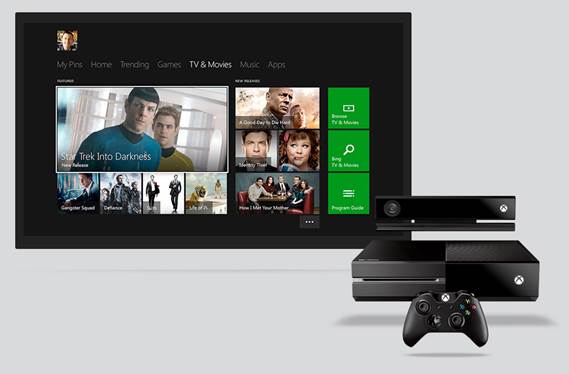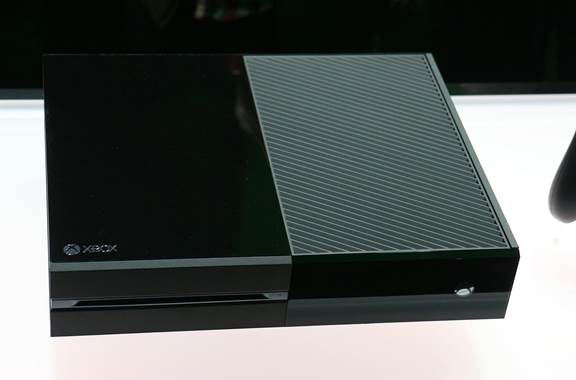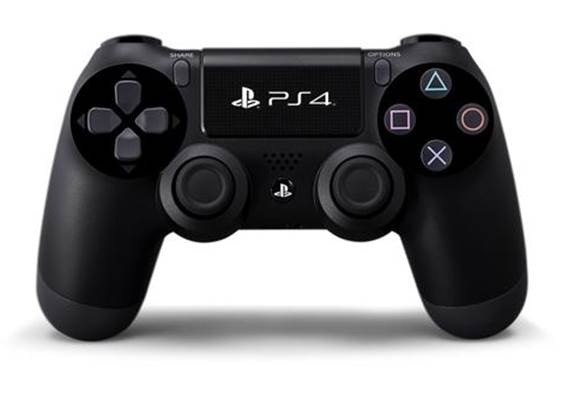Asking Permission
This leads us to what Microsoft has in
store with the Xbox One. Here's a games console where, as plans are set at the
moment, you're going to effectively have to ask on a daily basis for permission
to play your games. That's not an exaggeration. That's the digital rights
management system that Microsoft intends to deploy, as it stands right now.
Let's stop and think about that for a
second. There's no discounting of the machine; it's over $594 Microsoft wants
from you for it. There's no discounting of the games either, which are expected
to cost the usual from $59 to $74 for big releases. You go along to your gaming
emporium of choice, buy Call Of Duty: Ghosts, FIFA 14 or whatever else is
adorning the shelves. You take it home and then you can play it for 24 hours.

There's
no discounting of the machine
To get this far, you’ll have paid the best
part of $743. Here’s the kicker: if you don’t check in online within 24 hours,
your game will stop working. That’s regardless of whether you’re playing online
or sat by yourself, unconnected to the internet. It doesn’t discriminate as to
whether you’re playing a triple-A release or an old arcade game you’ve bought
on download. It’s still the same: if you don’t go online and check in, you
can’t play it. Furthermore, in certain circumstances, you have to ‘check in’
every hour. Checking in isn’t going to be an arduous job. The technology will
do it for you without you noticing, but that’s not really the point.
There’s more too. It’s long been a bugbear
of many big games companies that the second-hand market has grown so strong.
Being circumspect, you can see their concerns. If Game sells a second-hand copy
of Call Of Duty: Black Ops 2 for $30, then the publisher and developer doesn’t
get a drop of that. Not one penny. Instead, the Profit goes to Game. With a new
release, the revenue is shared and the original publisher gets some cash back
on its investment.
“If you don’t go online and check in, you
can’t play”
Games publisher have tried to find ways
around this. We’ve had onlinT passes, for instance. That’s where you have to
register a code to play a game online, and if you buy a second-hand copy
without a valid one or the code has been used, you’re asked to stump up to use
online services. It’s not been a massively popular policy, but at least you can
see some degree of season behind it.
However, the digital rights management of
the Xbox One allows them to go further. Basically, the notion of physically
lending each other games is under threat, and you won’t be able to do that in
quite the same way with the Xbox One. If you want to ‘gift’ a game to a friend,
then you can, but they have to have been on your friends list for 30 days or
more and you can only ‘gift’ a game once. Microsoft also allows up to ten
members of your family to access your shared games library. On the issue of
trading in games, Microsoft writes that “we designed Xbox One so game
publishers can enable you to trade in your games at participating retailers.”
The key word there is ‘can’. If the third-party publisher doesn’t want its game
traded on the second-hand market, then it now has a mechanism by which to stop
it happening. A mechanism that you’re paying for.
The Abuse Of Online
The idealism behind the internet is
unmistakable. It’s a technology that unites people at heart and a communication
method that’s brought many together. It does, however, seem increasingly
sinister int places, and the idea that a freeing technology is being used to
exert control over us is one that, sadly, we’re long resigned to. After all,
we’ve talked in Micro Mart’s past about how companies can now phase out
products should they so wish, if they have an online element to them. Microsoft
has managed to all but replace MSN Messenger with Skype this way, while Twitter
is slowly stripping features away from Tweetdeck to wean people off using it.

It's
"the ultimate, all-in-one home entertainment system."
The Feature That’s Not A Feature
Going back to the need to ‘activate’ a game
every day, staggeringly, Microsoft's official post on the matter says that
until you " re-establish a connection… you can still watch live TV and
enjoy Blu-ray and DVD movies." That might just be the sentence that makes
us feel more incandescent than any other. Why is it seen to be a privilege or
Microsoft doing us a favour to let us watch W or Blu-rays? Why should that be
extrapolated as any kind of feature at all? Televisions and Blu-ray players
have always offered this kind of functionality without making out they're doing
us a favor. For Microsoft, it's basically saying that your games aren't
working, but we'll let you do things with no interference in areas of the
market we're trying to break into.
Indeed, therein lies the key thrust of the
latest Xbox: that it's not trying to be a games machine. As with the
PlayStation 4, it's being pushed as an all-round media box. Sure, it'll play
games, but you can also use it to go online, to keep in touch with people, to
watch iP|ayer, to record television, to do pretty much anything. The games
console has been a Trojan horse for broader media intentions ever since the
full specs for the Xbox 360 and PlayStation 3 become known, but there's no
effort to be covert here. Watching a movie is side by side with playing a game
where the Xbox One and PlayStation 4 are concerned.

The
playstation 4
That in itself isn't a problem, of course,
and there's something to be said for having such a capable device in the living
room. There's certainly a convenience to it and, in fairness to Microsoft, the
power of the modern games console allows it to offer the gaming side of things
without impacting on its other plans. There's logic in its strategy for the
Xbox One to be a hub through which you play media, be it live television,
Blu-rays, Netflix or whatever. The bizarre thing is that the only function
it'll ever stand in the way of is playing games.